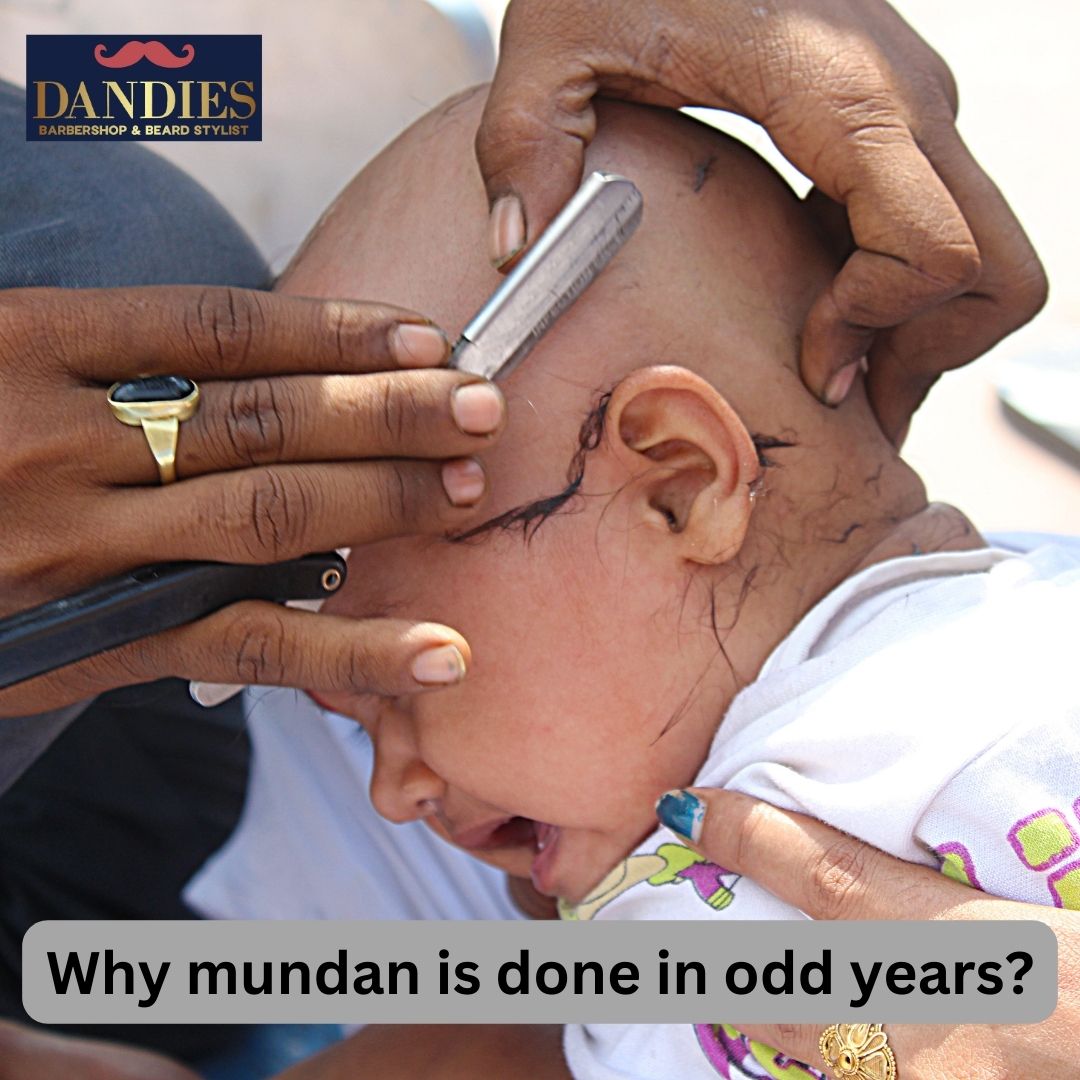Why mundan is done in odd years?
25 February | By Sheeza

In the rich tapestry of Indian culture, rituals and traditions hold profound significance, shaping the lives of individuals and communities alike. One such tradition that has endured through generations is the ritual of Mundan, or the first haircut of a child. Interestingly, Mundan is often performed in odd years, a practice steeped in cultural beliefs and ancient wisdom. In this blog, we delve into the symbolism and reasons behind why Mundan is traditionally done in odd years, unraveling the cultural significance of this age-old practice.
1. Astrological Beliefs:
In Indian culture, astrology plays a significant role in determining auspicious timings for various life events. According to Vedic astrology, certain planetary alignments and celestial movements are believed to influence human life and destiny. It is believed that odd-numbered years are generally considered more auspicious for Mundan ceremonies, as they are associated with positive cosmic energies and favorable planetary influences. Performing Mundan in odd years is believed to bestow blessings, protection, and prosperity upon the child, ensuring their well-being and future success.
2. Symbolism of Odd Numbers:
Beyond astrological beliefs, there is symbolism attached to odd numbers in Indian culture. Odd numbers are often associated with balance, harmony, and auspiciousness, while even numbers are sometimes viewed as less favorable. Performing Mundan in an odd-numbered year is believed to symbolize the transition from infancy to childhood, marking a significant milestone in the child's life journey. It is seen as an auspicious beginning, imbued with positive energy and blessings for growth, health, and prosperity.
3. Cultural Traditions and Customs:
The tradition of Mundan varies across different regions and communities in India, each with its own customs and rituals. While the timing of Mundan may vary based on individual beliefs and family traditions, the preference for odd years is a common thread that runs through many cultures. Families often seek guidance from elders, priests, or astrologers to determine the most auspicious time for Mundan, taking into account factors such as the child's birth chart, lunar calendar, and planetary positions.
4. Spiritual Significance:
Mundan is not merely a physical act of cutting hair but holds deep spiritual significance in Indian culture. It is believed that hair carries energy and influences, and by shaving off the hair, especially in an odd-numbered year, negative influences are removed, and the child is purified and protected from harm. The act of Mundan is often accompanied by prayers, mantras, and rituals, invoking blessings from the divine for the child's well-being and prosperity.
5. Family Bonding and Celebration:
Beyond its spiritual and astrological significance, Mundan is also a time for celebration and family bonding. It is an occasion where relatives and loved ones come together to bless the child and partake in the joyous festivities. Mundan ceremonies are often accompanied by traditional rituals, music, feasting, and gift-giving, creating cherished memories that are treasured for years to come.
In conclusion, the tradition of Mundan being performed in odd years is deeply rooted in cultural beliefs, astrological influences, and spiritual symbolism. It is a sacred rite of passage that marks the beginning of a child's journey into childhood, surrounded by love, blessings, and auspicious energies. Whether performed for astrological reasons or as a cherished family tradition, Mundan serves as a beautiful reminder of the rich tapestry of Indian culture and the enduring significance of age-old rituals.


